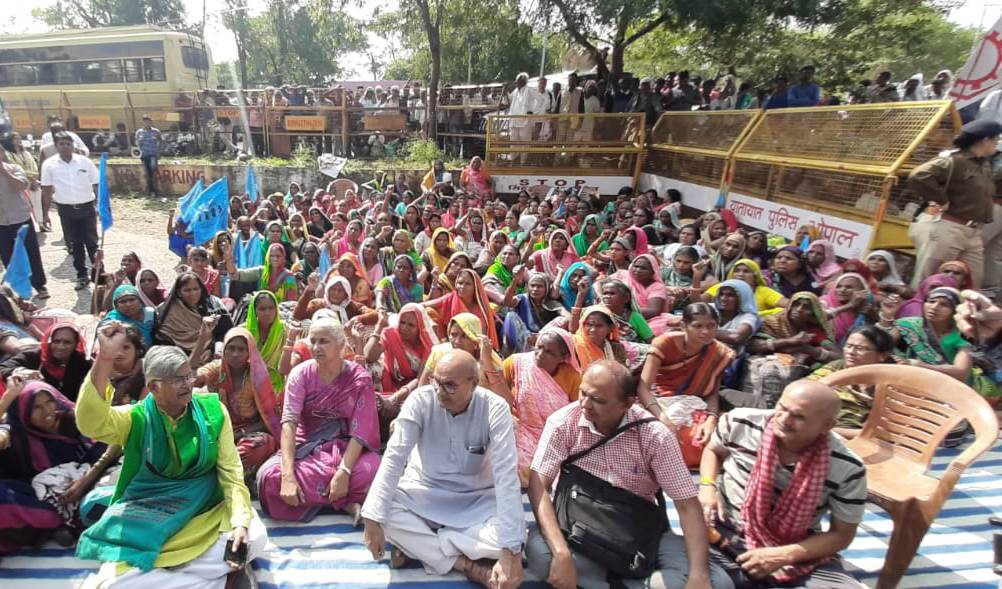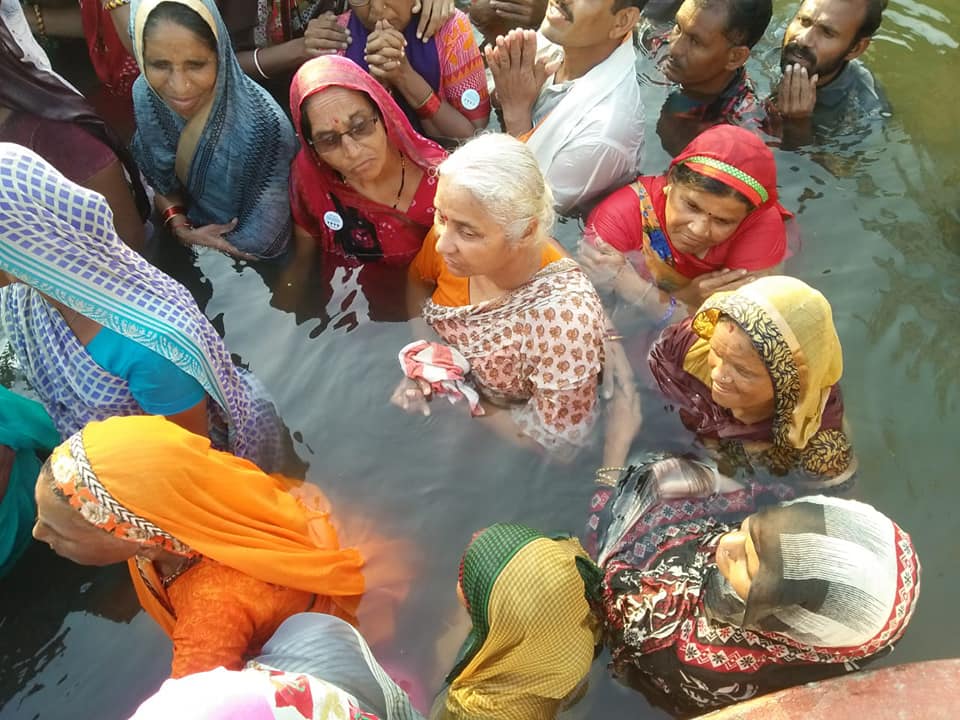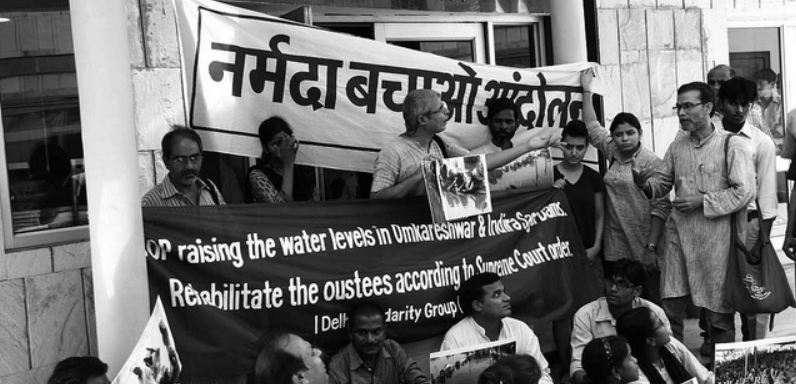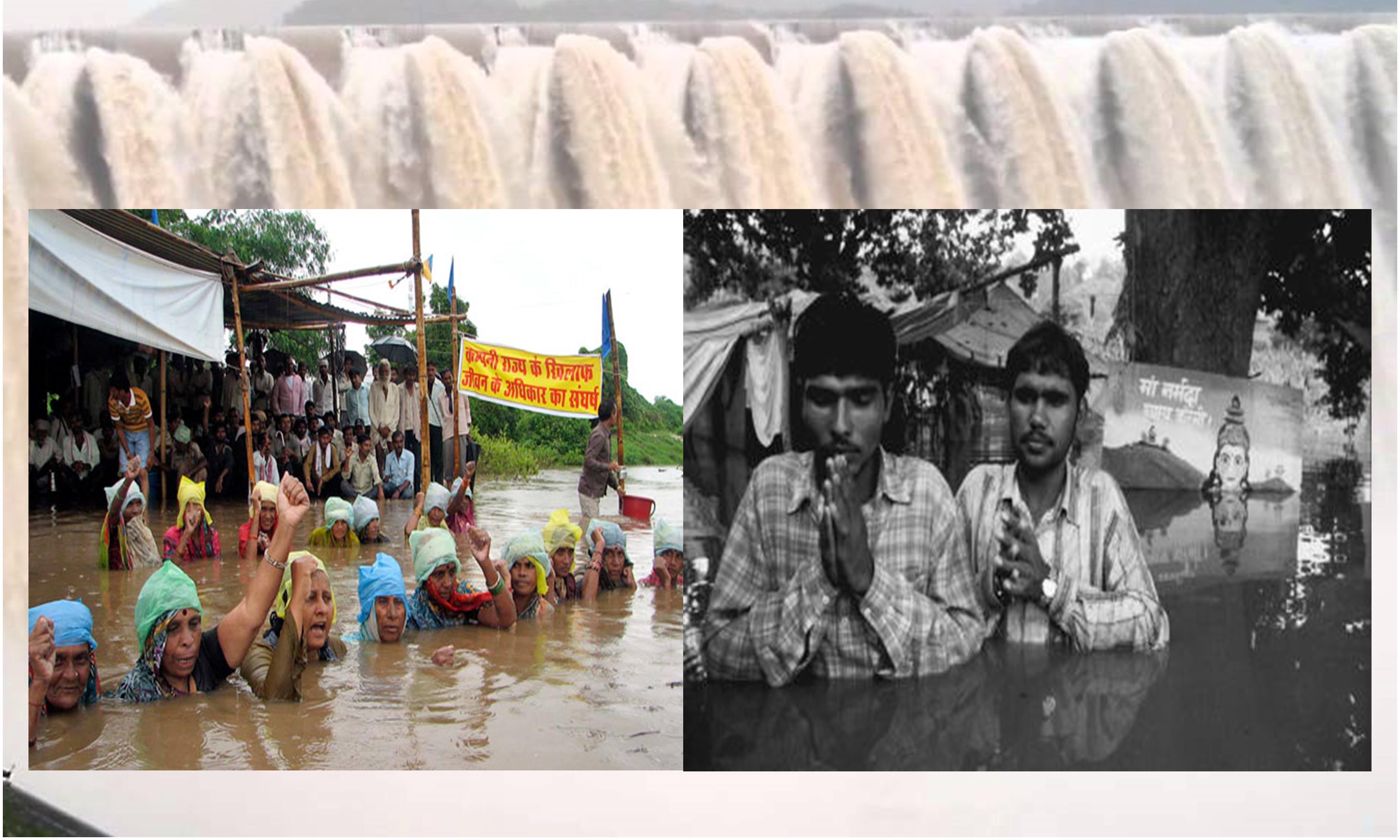Women are civilizationally revered and statistically violated in India. In this article with a nuanced interpretative analysis the author looks at the three recent incidents- stalking in Chandigarh, molestation at Dantewada and arrest of Medha Patkar, and argues that instead of worshiping the mythical Bharat Mata we ought to look at the everyday struggle of real women passing through extreme forms of patriarchal /statist violence.
Ananya Pathak | Feature Editor | The New Leam
India as a civilization has always had a deep fascination for the mother archetype. That is why perhaps from its epics and mythologies, to the naming of its rivers, plants and animals, to its veneration of the female form as goddess, to its fascination with the ‘mother’ figure as an epitome of values, ideals and high morals in popular Bollywood films – it’s clear and manifest celebration of the woman as a higher, pious, immortally virtuous and uncorrupted being is abundant everywhere from myth to cultural production.
It will not be wrong to say that the ‘collective unconscious’ of India is abundant and overflowing with the mother archetype as a symbol of fertility, virtue, purity and eternal grace. It is indeed a moment of pride to realise how traditionally and often unconsciously we have revered the woman so much, how much value we have attached to her capacity for tolerance, nurturance and forgiveness and to the extent to which we have seen her as indispensable to the flow of civilization. In the Eastern part of India the mother goddess Kali fascinates us with her fierce rage and unpredictability, in the South Laxmi comes with the promise of wealth and abundant prosperity and in the realm of celluloid who can forget the iconic mother in films like Dewaar and Mother India where the character of ‘mother’ is at once a symbol of feminine nurturance, strength of character and an uncompromising adherence to justice. The Indian soil itself has been venerated to the status of the ‘mother land’ and its most prominent water resources accorded the status of mothers too. It is indeed fascinating to discover that as a civilization our fascination with the capabilities of women as a unique species capable of extremities goes long back in history.
It is for precisely these reasons that today when we look at contemporary India it becomes extremely difficult to understand why despite the special status that we have accorded to her both in myth and forms of cultural production the condition and plight of ‘real women’ in flesh and blood seems to be so rapidly on the decline. Out of the many cases of rape, molestation, violence, exploitation and oppression that we are accustomed to hearing each day; let me talk about three specific and yet adequately representative cases of violations against women in contemporary India and how these reveal so much of the paradox of our culture and values.
Why should women be confined at night?

Only a few hours have passed since a woman named Varnika Kundu who worked as a Dj in Chandigarh was tailgated and terrorized allegedly by the Haryana BJP Chief’s son when she was returning back after the day’s work. The woman has alleged that the Chief’s son along with his friend stalked her for miles and even tried to kidnap her. After her sustained appearance on television news channels condemning and expressing her angst, a lot of social criticism and ridicule has been pointed out to the perpetrator of the crime. What adds to the grim situation is that the man and his friend were arrested only for a couple of hours and then left free despite enough proof against them. Let us not go deeper into the failure of the judiciary or the lack of efficiency in the police mechanism, rather let us concentrate on the deeper mind-sets that this statement made by leader’s Deputy reveals when he said “ why was Ms. Kundu allowed to stay out late, parents must take care of their children, and they should not be allowed to roam at night”
Even after seventy years of partition we have not been able to make a gender-safe nation and imagine we have the audacity dream of becoming a super power in the next few years! Would we be prepared to tell our sons to remain indoors after sunset, would be have the strength to determine the clothes that men choose to wear, the language that they use, the professions they take up, the relations that they make with other women or even control them in many more mundane things?
The way that informal socialization takes place in the family and formal education proceeds in educational/vocational institutions is fundamental to the way that gender-consciousness is cultivated. From childhood we are taught that a housewife is ‘not working’, a sister needs ‘protection’, a woman can’t do a ‘tough’ job and its reserved for men, that women are supposed to be calm, submissive and even cowardly and that makes them attractive to the male gaze, that only immoral women go out at night etc. It is paradoxical that we are doing nothing to fight this regressive mechanism that degrades women, represses them and makes their life perpetually miserable. The question is therefore not whether women should be out at night or not but whether they live in an environment that nurtures them and not predates on them?
Are men really the ‘protectors’ of women?

In Chattisgarh’s Dantewada district a recent case worthy of extreme condemnation has recently surfaced. In a residential school for girls run by the state a function on the occasion of Rakshabandhan was organised where the students were to tie rakhis to the CRPF personnel. But tragically the day that was meant to commemorate the sacred bond between men and women as brothers and sisters turned out to be a nightmare when these very girls were molested by the personnel. The traditional protectors have certainly turned ‘predators’ in the wild jungle called society. Despite such news it is paradoxical that we continue to associate men with unfailing virtue and women with uncontrolled vulnerability of both mind and body? What else is civilization if not mutual respect and reverence?
Why despite being unheard non-Violence is the ultimate strength of character?
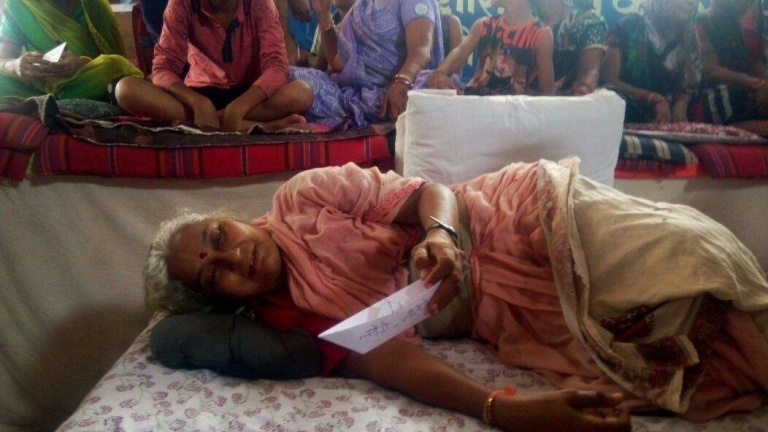
Medha Patkar who was protesting against the inadequate rehabilitation and resettlement of about 40,000 families affected by the Sardar Sarovar Dam on the Narmada was forcibly shifted to a hospital in Indore by the Police on Monday after she went on an indefinite hunger strike on July 27th. She was disheartened and in an audio message posted in Social Media she condemned the establishment for not paying any heed to non-violent struggles and said that no dialogues were initiated by the state. Non-violent protests are perhaps a Gandhian legacy that will never lose their relevance, in the age of extreme violence and propaganda the strength to protest peacefully is immense. A woman who gave her entire life to people’s causes, sat on an indefinite hunger strike not for herself but for others and all she asked for was the legitimate right of thousands of poor, suffering families- and yet she deserved to be treated in this way? It is indeed an ultimate crisis in civilization, perhaps we have grown too accustomed to bombs and riffles and peaceful movements don’t reach our ears too soon. It is again a time that reveals the rapid decline of a civilization that once claimed that it revers its women.
The three incidents are recent and ripe in our memory and needless to add are only representatives of the innumerable incidences of oppression that take place against women each day. The archetype of the woman has perhaps begun to gradually fade away and is being replaced by the sadist masochism characteristic of the present day. It is time we stepped down the mythical pedestal of cultural ethics, morality and reverence for women and did some ground work to improve the condition of real women, who are not goddesses but at least ‘humans’.
The New Leam has no external source of funding. For retaining its uniqueness, its high quality, its distinctive philosophy we wish to reduce the degree of dependence on corporate funding. We believe that if individuals like you come forward and SUPPORT THIS ENDEAVOR can make the magazine self-reliant in a very innovative way.


